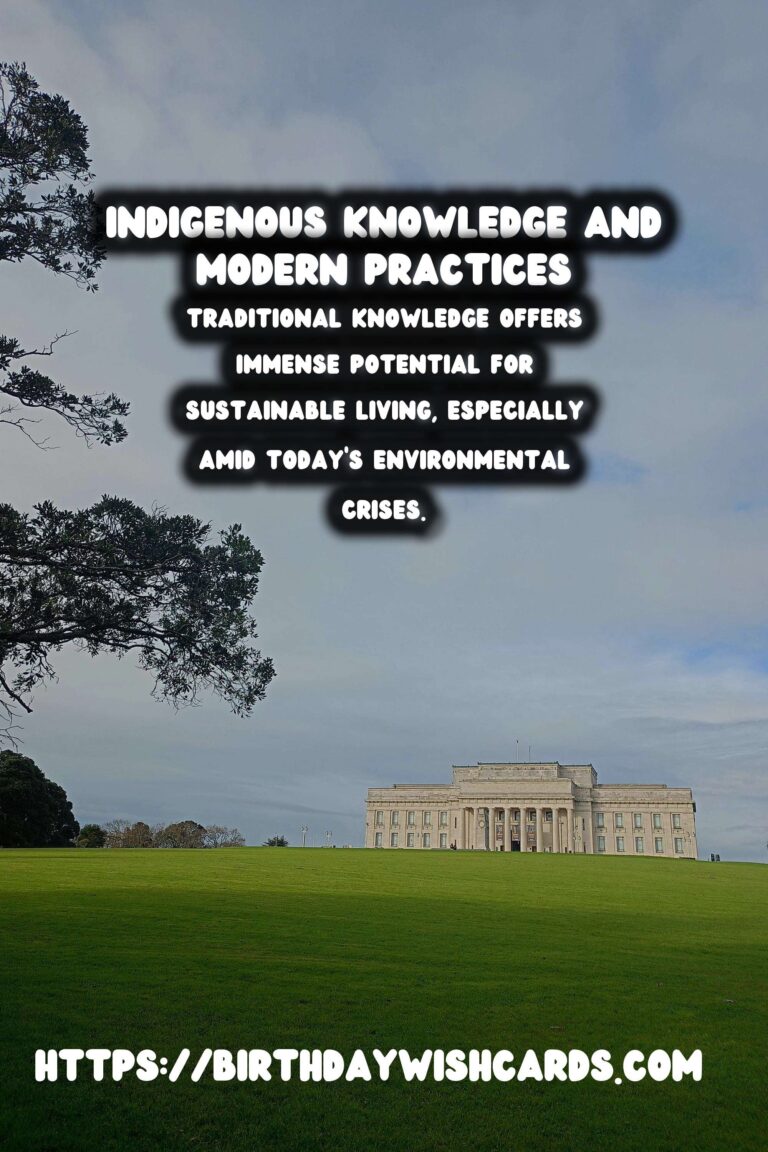
Indigenous heritage encompasses the practices, knowledge, and cultural expressions that have been passed down through generations among Indigenous peoples. These elements form the core of their identity and community life and have significant influence over their worldview and relationship with nature.
Unlike modern societies, Indigenous communities often maintain a harmonious relationship with their environment, using traditional knowledge that has been fine-tuned over centuries.
The Importance of Traditional Knowledge
Traditional knowledge includes the skills, experiences, and effective solutions Indigenous peoples use in their daily lives, particularly in agriculture, medicine, and ecology. These practices are intertwined with cultural rituals and community governance systems.
For instance, ancient agricultural techniques, such as terrace farming used by the Inca, remain relevant today, especially in combating challenges posed by climate change.
Modern Relevance of Indigenous Practices
Amid today’s environmental crises, Indigenous traditional knowledge offers critical insights into sustainable living. Communities worldwide can benefit from these sustainable practices, as Indigenous peoples have long been stewards of biodiversity.
The UN recognizes the value of Indigenous knowledge in global strategies for conservation and sustainable development. Indigenous peoples’ intimate understanding of ecosystems is pivotal in preserving biodiversity and combating climate change.
Moreover, ethical considerations in scientific research and intellectual property highlight the importance of preserving Indigenous knowledge against exploitation, ensuring that Indigenous communities retain control over their cultural heritage.
Challenges and Opportunities
While traditional knowledge offers immense potential, challenges remain in integrating it within modern frameworks. The disparity in recognition and respect for Indigenous rights poses significant barriers. However, global advocacy movements are taking steps to safeguard Indigenous intellectual property and promote inclusive approaches where Indigenous voices lead the conversation on cultural and environmental matters.
Bridging the Gap: A Promising Future
Initiatives like the UNESCO World Heritage Sites aim to protect landscapes important to Indigenous cultures. These efforts not only conserve the environment but also promote cultural tourism that educates and benefits Indigenous economies.
To truly appreciate Indigenous heritage is to understand its relevance in the modern world. By integrating traditional knowledge with scientific approaches, there is an opportunity to create resilient systems that benefit society as a whole.
Understanding and incorporating the wisdom of Indigenous peoples into contemporary practices is not just beneficial but crucial for achieving sustainable development goals.
Indigenous heritage encompasses the practices, knowledge, and cultural expressions that have been passed down through generations among Indigenous peoples. Traditional knowledge offers immense potential for sustainable living, especially amid today’s environmental crises. 
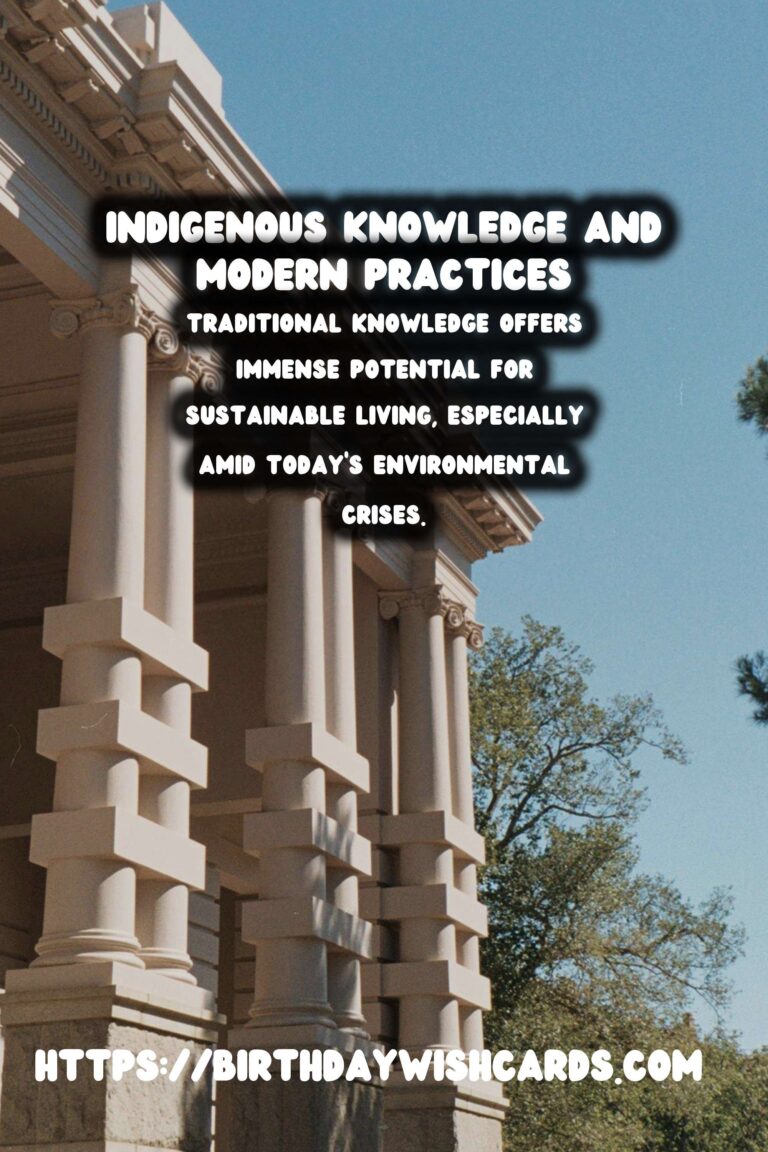
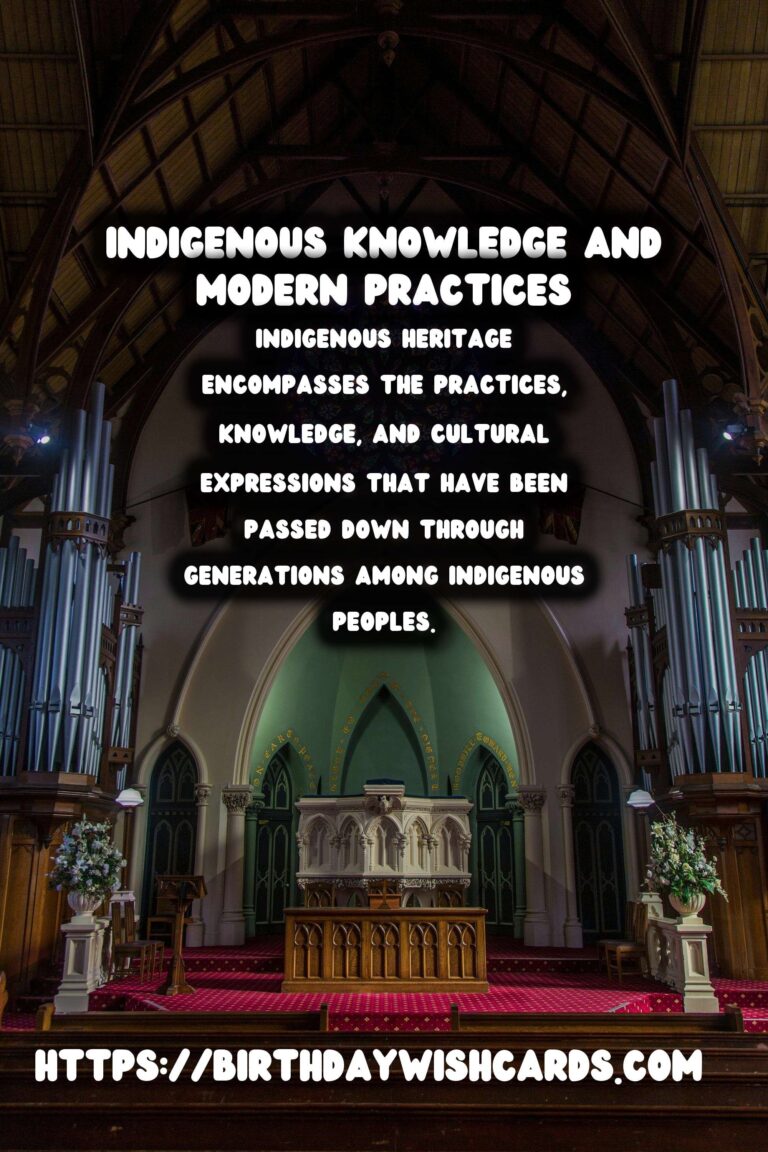
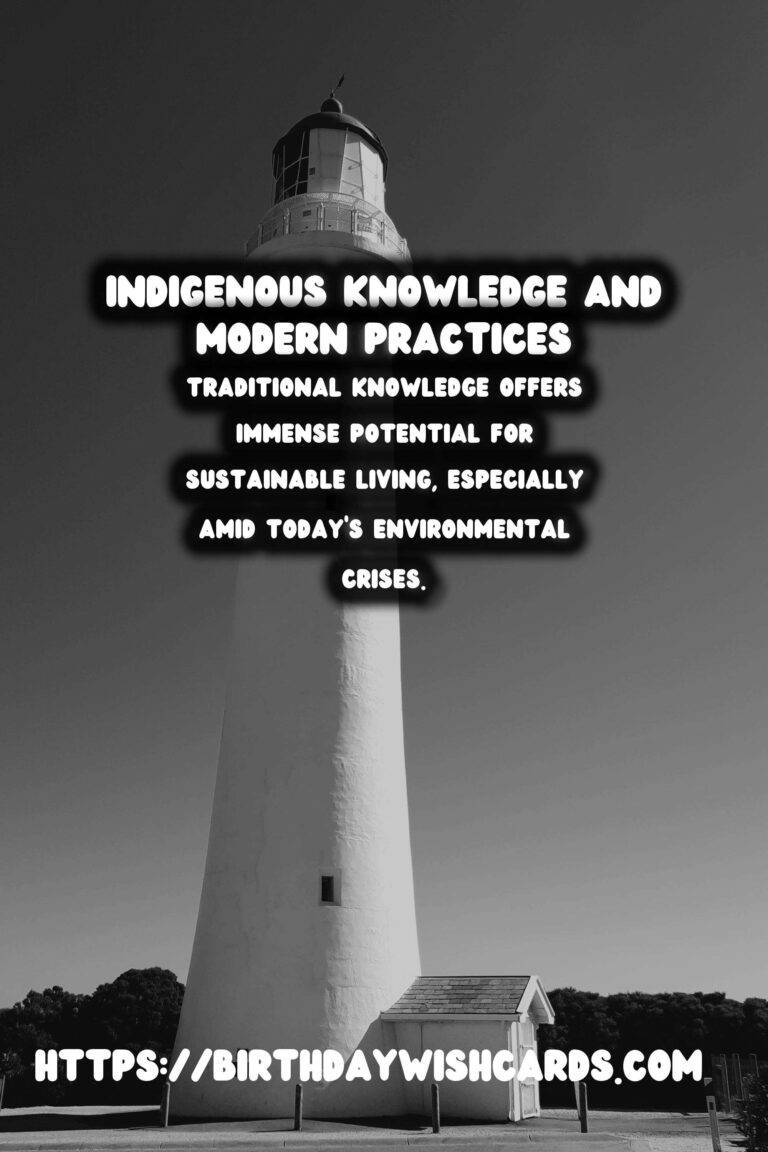
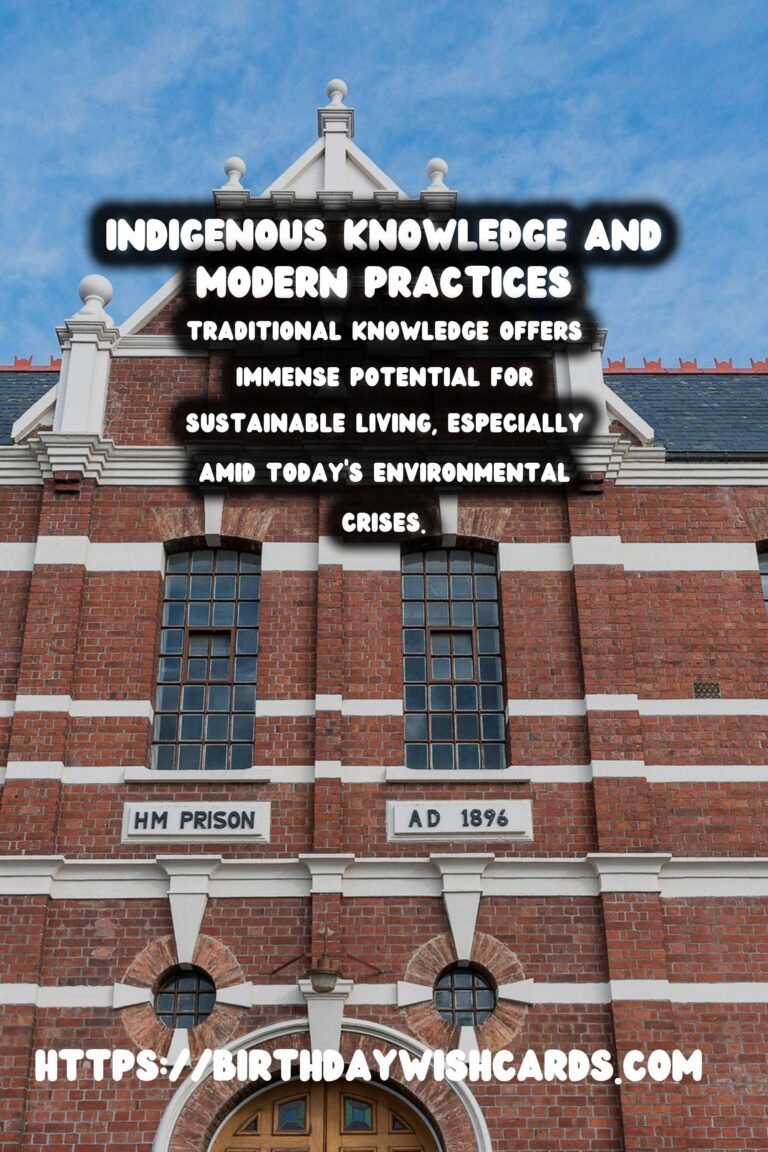
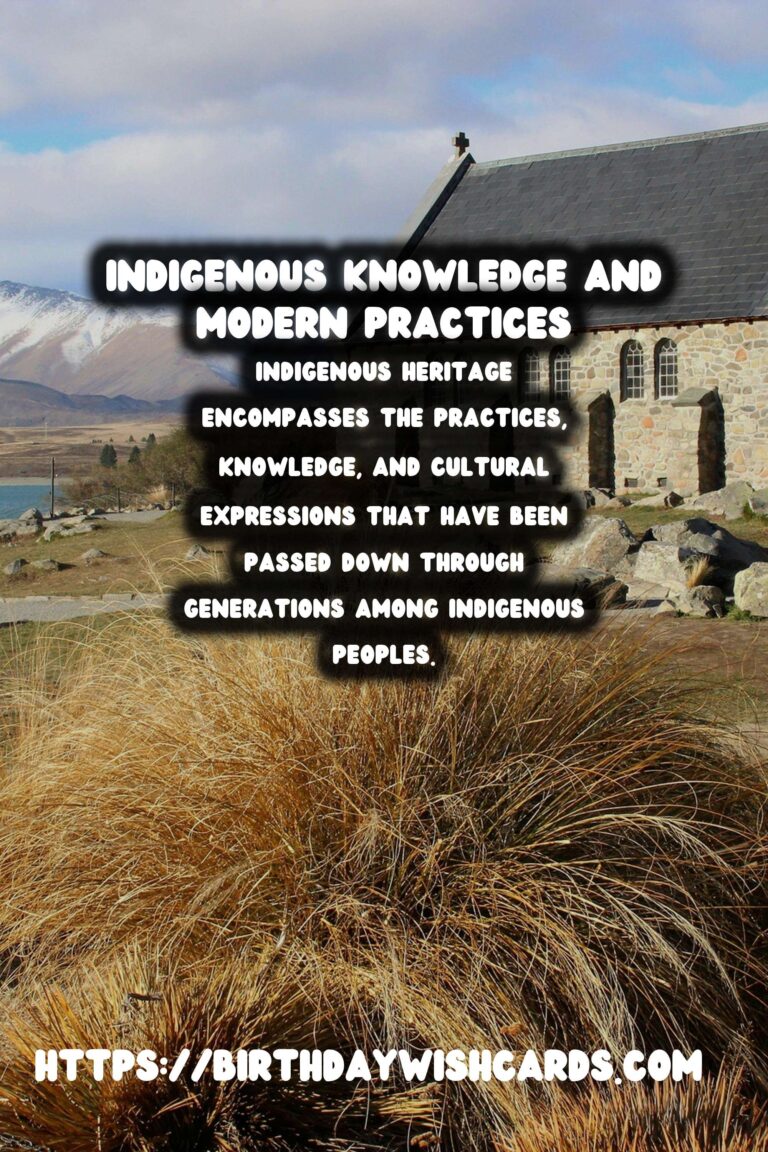
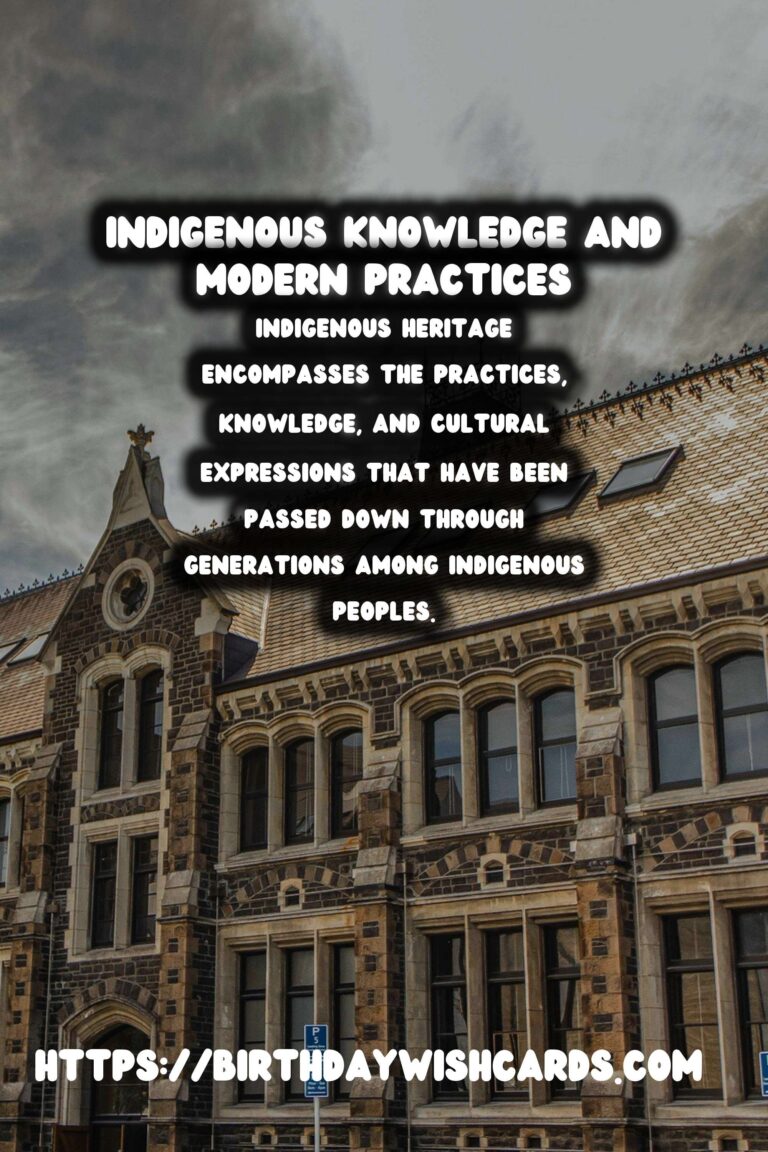
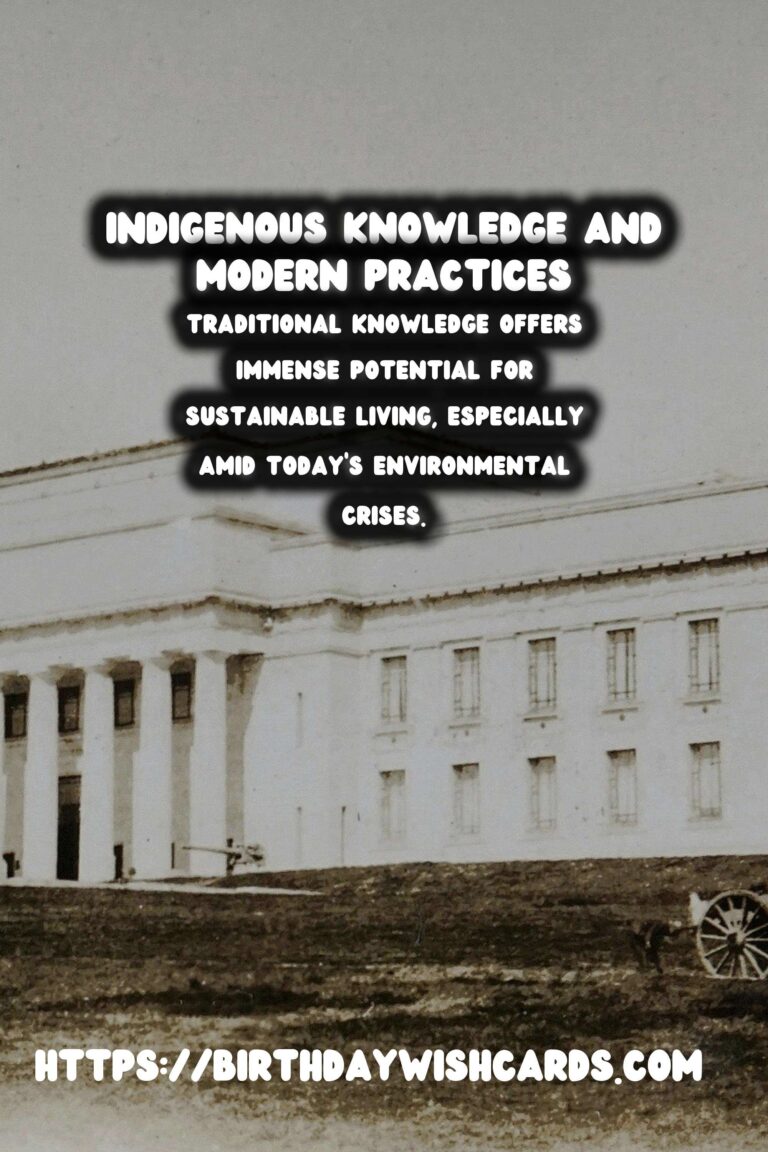

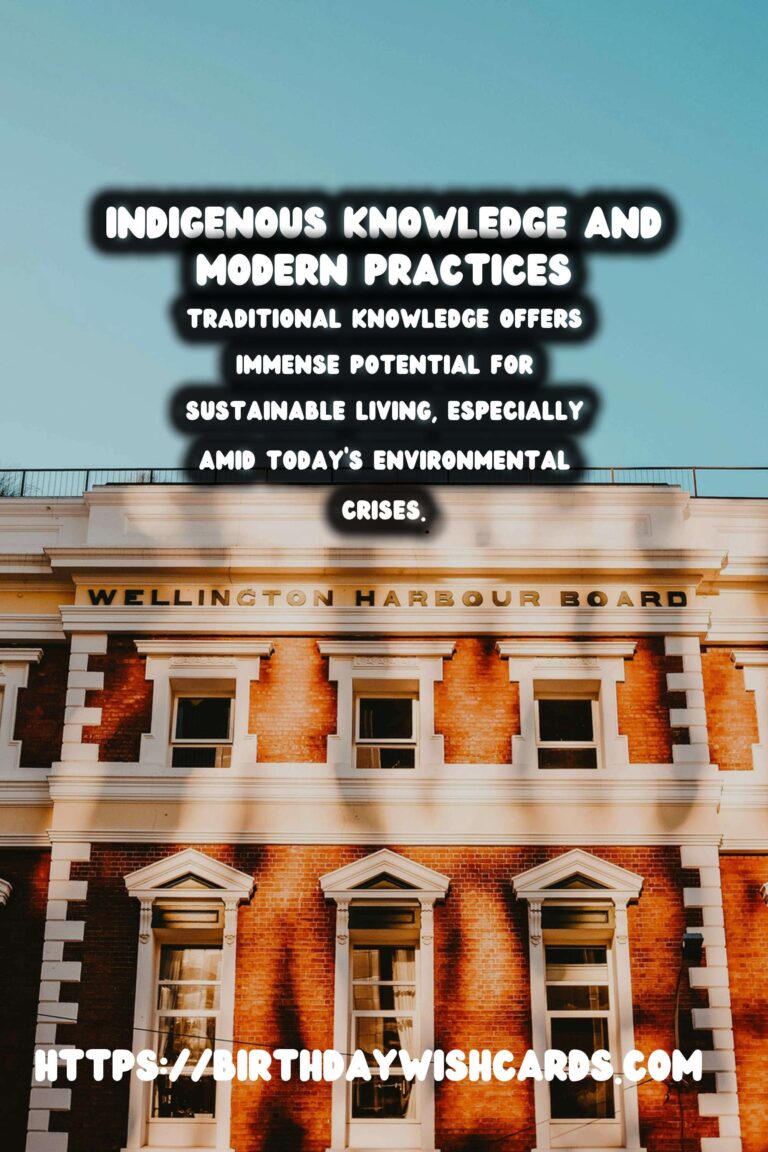
#IndigenousKnowledge #CulturalHeritage




